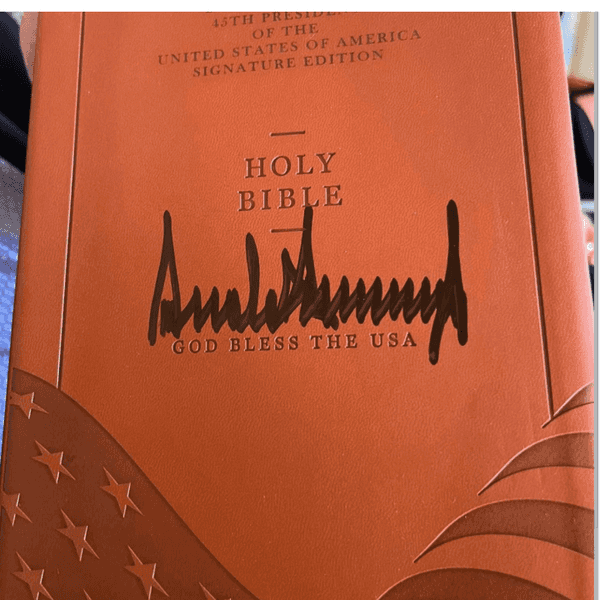Christie Aide Details Workings Of Office At Heart Of Bridge Scandal

By Melissa Hayes and John Reitmeyer, The Record (Hackensack, N.J.)
TRENTON, N.J. — An aide to New Jersey Gov. Chris Christie detailed the inner workings of the political outreach office at the heart of the George Washington Bridge scandal, telling lawmakers at a hearing Tuesday about a supervisor who seemed to take orders rather than make decisions, and taking responsibility for the order to cut communications with Fort Lee’s mayor.
Christina Renna was the first of Christie’s staff to testify directly before the legislative committee investigating the bridge scandal.
Her supervisor and onetime friend, Bridget Anne Kelly, is the now-fired Christie deputy chief of staff who appeared to order the lane closings at the bridge with her “Time for some traffic problems in Fort Lee” email.
Renna, who worked in Christie’s Office of Intergovernmental Affairs and was Kelly’s former deputy, cast doubt on a core conclusion drawn by the lawyers hired by Christie to investigate the lane closures: that Kelly and David Wildstein, a former Port Authority official, alone ordered the lanes closed, apparently to punish Fort Lee Mayor Mark Sokolich, who would not endorse Christie’s bid for a second term.
During a daylong committee meeting Tuesday, lawmakers pressed Renna to explain how the Christie administration staffers in her office straddled the line between politics and good government; whether Kelly was the type of manager capable of carrying out the lane closures; and what, if any, knowledge Renna had of the episode.
In her responses, Renna said she played no role in the lane closures, but she acknowledged she ordered a staffer to stop communications with Sokolich. Renna did that, she said, after learning Kelly was not happy with the mayor.
Renna said there were some inaccuracies in the documents made public by the lawyers after they released their report — a report Christie has repeatedly held up as the scandal has developed into the biggest crisis of his political career, one that has threatened his presidential aspirations.
She resisted adopting the lawyers’ use of the phrase “lane realignment,” instead repeatedly saying “lane closures” during testimony that was at times emotional, but also at times lighthearted and easygoing.
Renna, seated next to her attorney throughout Tuesday’s hearing, was asked to explain why it was appropriate for staffers who worked under her in a government agency to seek political endorsements for Christie from mayors at the same time they were interacting with them for government purposes. She responded they did so only as volunteers on their own time.
She also was asked why she didn’t challenge orders from Kelly, even a request to delete an email demonstrating Kelly was apparently happy to hear the lane closures created problems in Fort Lee. Renna said she feared she could lose her job in the Christie administration.
The Democrats who control the panel said the testimony echoed what other witnesses have said, namely that they felt too intimidated to come forward and challenge the lane closures, which snarled traffic in Fort Lee for several days and tied up ambulances and other first responders.
Renna was the first witness to come before the committee in months, following a period of dormancy after two other potential witnesses, Kelly and former Christie campaign manager Bill Stepien, refused to turn over documents, citing their constitutional protection against self-incrimination. A Superior Court judge ultimately upheld their right to snub the panel.
It was during this period that the firm Christie hired to review the lane closures, Gibson, Dunn & Crutcher, released its report and notes from the interviews it conducted with 75 witnesses, including Christie himself. After the hearing ended Tuesday afternoon, the state released some bills the firm has submitted, totaling more than $1 million.
The legislative committee plans to meet again next week to take testimony from Christie press secretary Michael Drewniak, who reportedly also has cooperated with a federal criminal investigation of the lane closures.
At one point during Tuesday’s hearing, when asked directly if she thought Kelly orchestrated the lane closures, Renna stopped short of saying so, adding Kelly made few decisions on her own.
“I think that Bridget was not an architect, but I think she participated in whatever this was,” Renna said.
She agreed with a characterization offered by Assemblywoman Lou Greenwald, D-Camden, who said that in his experience Kelly was “a soldier who took orders and responded to those orders and would relay orders.”
And when asked directly by Assemblyman Paul Moriarty, D-Gloucester, if she believed Kelly and Wildstein acted alone, she responded: “I don’t know.”
Greenwald also focused on how staff in her office worked to secure endorsements for Christie’s campaign from the same public officials they assisted on a daily basis. He pointed to her decision to cut off communications with the Fort Lee mayor as proof that “politics took over.”
But Renna said that staff worked to secure endorsements only after government business hours, adding there were times “panicked” staff members would call her during business hours to say a mayor brought up politics.
Democrats also focused on Renna’s remark that the attorneys hired by Christie had been inaccurate in parts of the written summary of their interview with her.
Renna never said her office’s staff was given “mandatory directives” not to communicate with certain mayors, something the Gibson Dunn lawyers attributed to her, she said Tuesday. She said staff was told they didn’t have to be proactive about returning certain mayors’ phone calls, but that if a local official called with an issue, it would be addressed.
“ ‘Hands-off mayors’ would be people IGA would not be proactively conducting outreach with,” Renna said, referring to the Office of Intergovernmental Affairs. “We would not be picking up the phone and saying, ‘Mayor, how are you doing?’ ”
Renna told the lawmakers she would have to go through the interview memo line by line to determine if there were more inaccuracies, but later, when questioned by Sen. Kevin O’Toole, R-Cedar Grove, she was more dismissive of concerns about the memo.
“Largely, I think it’s accurate,” she said.
After the hearing, the Democrats said Renna provided important information that moved the investigation forward, even if she couldn’t provide definitive answers to the still-unanswered questions of exactly who ordered the lanes closed and why.
Before Renna began testifying, Republican members aired concerns that the committee wasn’t pressing more firmly to bring in Port Authority officials for testimony, saying that would go to the ultimate goal of reforming the bi-state transportation agency.
Later in the day, Christie and New York Gov. Andrew Cuomo announced the creation of a panel of Port Authority commissioners and advisers to both governors, to come up with ways to reform the agency.
Michael Critchley, the lawyer representing Kelly, took issue with parts of Renna’s testimony, including depictions of his client as “insecure” and “paranoid.”
“Anyone who thinks they are going to rewrite history and make Ms. Kelly a scapegoat is gravely mistaken,” he said.
AFP Photo/Jeff Zelevansky








